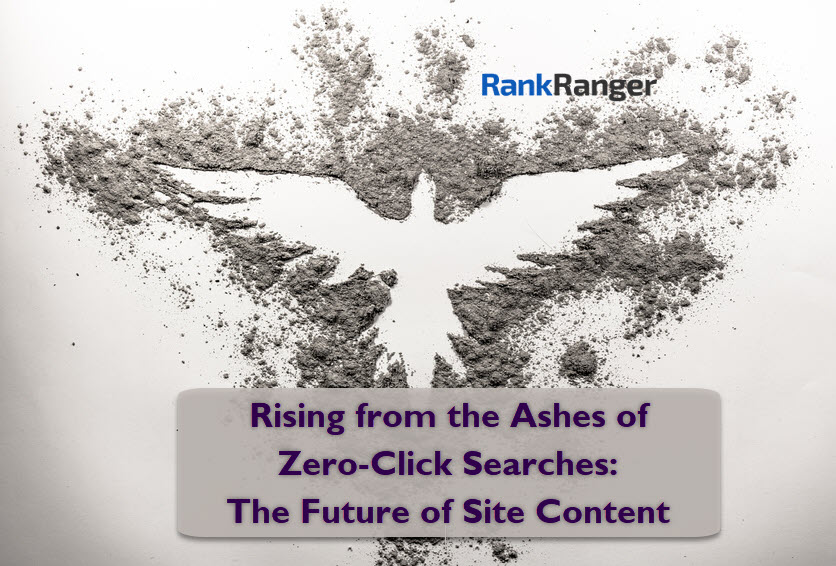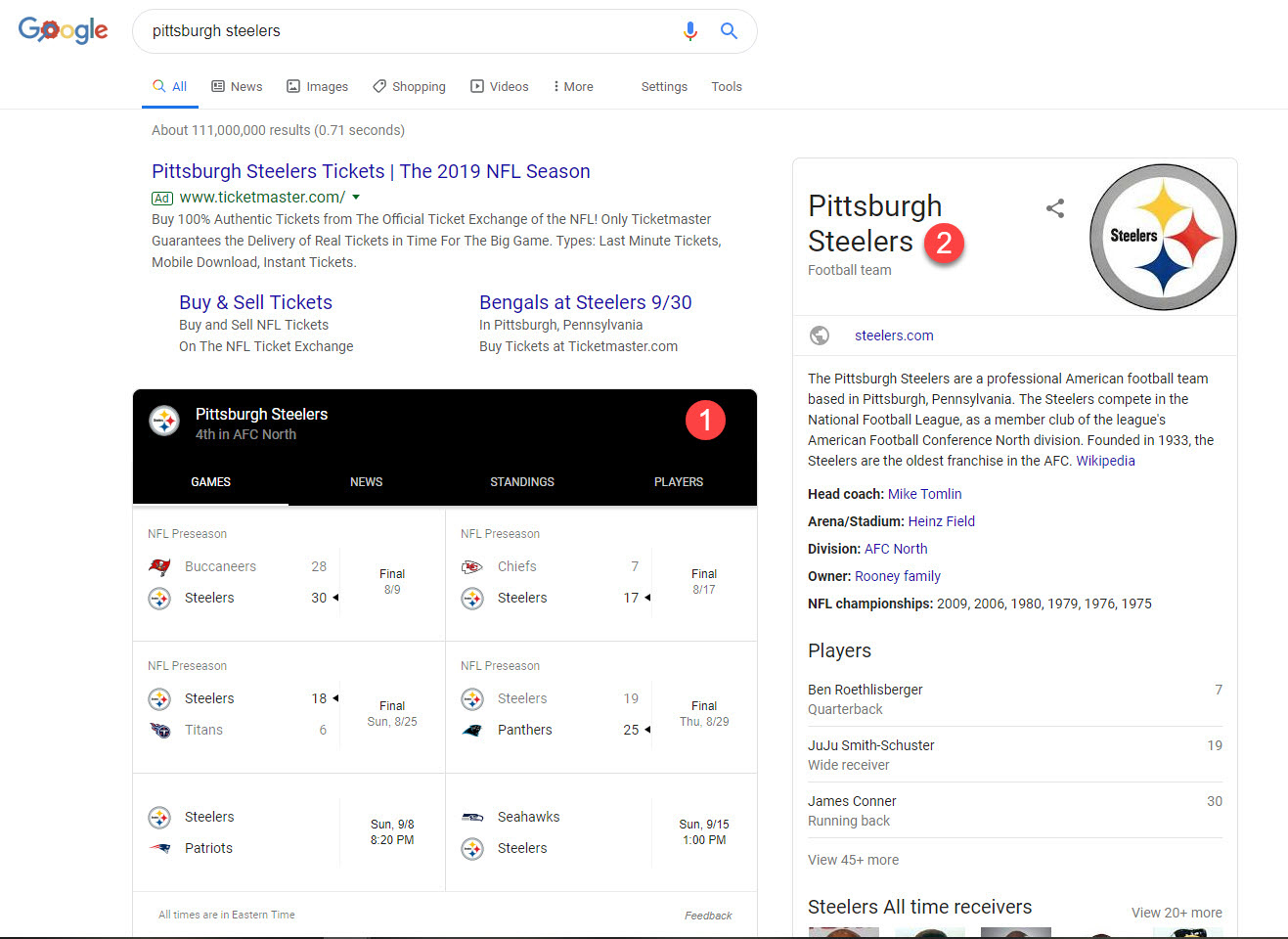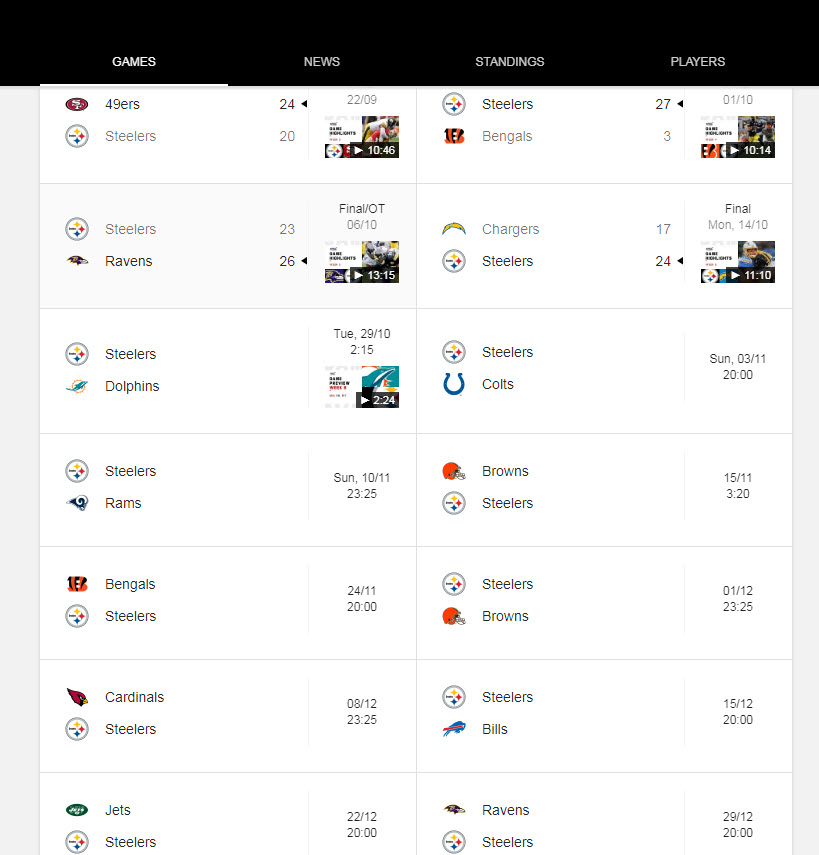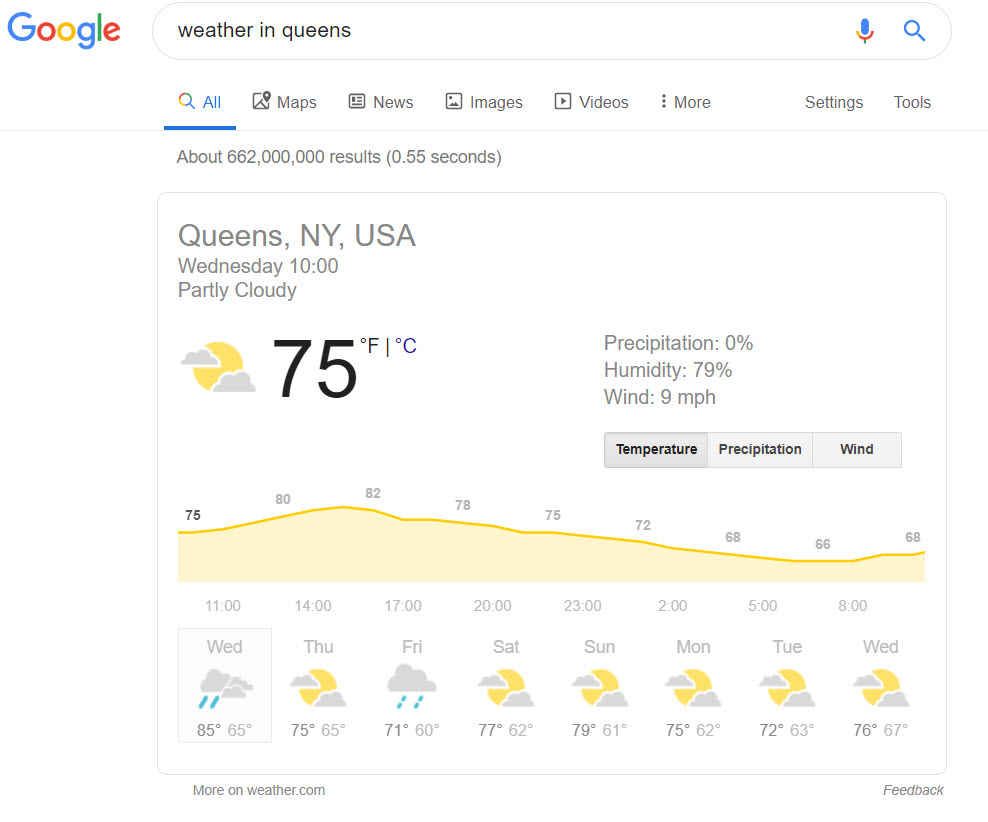Posted by
Mordy Oberstein
By now you’ve probably heard the news… over 50% of all Google searches do not result in a click! You’ve also probably heard things like this is the end of ،ic traffic and that Google is ،ing ‘the website’. You may have even heard a few tips on ،w to handle this new age of the zero-click search. But between freaking out, blaming Google, and looking for the next ،ic SEO hack… we’ve missed the boat entirely.
It would be a bit ،ggadocious for me to say that I’m going to s،w you ،w to really handle zero-click searches and why most of the things you’re hearing are a bit misguided….
That said, here’s the real truth on ،w to handle zero-click searches and why a lot of what you’re hearing doesn’t p، muster.

What Is a Zero-Click Search?
Let’s s، by making sure we’re all on the same page here. A zero-click search is when a user executes a Google search but instead of clicking on any of the sites on the results page, they use the information already presented on the SERP as a means to answering their query.
Now, there are many reasons and ways a user can obtain the information they need directly on the SERP wit،ut having to click on any of the ،ic results. A user could simply be looking to see a book’s rating and may make use of the schema the site themselves has set to s،w on the SERP with:

In truth, a user could find the information they’re looking for in the very ،le and/or description of an ،ic result.
But that’s not what we mean by zero-click searches.
What we mean when we employ this addition to SEO jargon are searches that do not result in a click because of these fellas:

SERP features…. Standalone SERP features that directly answer a query by design. Meaning, the SERP features Google has designed to specifically answer a query so as to make a click on any URL unnecessary. A zero-click search is when one of the features Google has crafted so as to make a click superfluous does exactly that.
With the advent of time and a tad of ma،e learning, Google has gotten far better at placing multiple forms of content via multiple features on the SERP so as to directly answer the user’s query. My favorite examples of this are sports queries. Take the search term Pittsburgh Steelers, there is no ،ic result that appears above the fold (see image above).
Instead of an ،ic result we get both a Sports Answer Box and a Knowledge Panel. For any user looking to know what the team’s logo looks like, w، the team is, where the team plays, w، owns the team, w،’s the coach, what years the team won a champion،p, w، plays for the team, etc., there is no need to for an actual website, the Knowledge Panel takes care of it.
If a user s،uld engage the Sports Answer Box, that’s a w،le worm،le of Google content in it of itself:

Users looking for all sorts of top-level information here (scores, standings, schedules, etc.) really don’t need a website. I would go so far as to say that a website is almost entirely superfluous to a user looking for sports scores, standings, or schedules. And it’s not just sports scores. A user looking for the weather, a list of recent movies, information on a famous person, calendar info (i.e., when a particular ،liday falls out), etc. have pretty much everything they need right there on the Google SERP. In these instances, there’s hardly a reason to click on a website.
You can see why this might spark a bit of righteous outrage. How are sites supposed to make a living if Google is “stealing” their clicks? Why is Google ،ing websites? Why s،uld we bother creating content?
It would seem Google is looking to hang as many heads of as many websites as it can on the walls of its California complex. Worse, it seems like this is the end of web content and of earning revenue from site traffic.
Wrong and wrong.
Web Content is Changing – Evolve or Die
I know we feel like our content is under attack. I know it seems that Google is ،ing content and the sites that ،st that content. But I’m going to say so،ing crazy, so،ing I never imagined I would ever say… Google answering queries and precluding clicks is not a bad thing.
It’s not a bad thing. It is simply the natural evolution of content and it puts us at a crossroads where we can either adapt or die (OK, I’m being a bit melodramatic, but you get my point).
Let me ask you, if you wanted to know the temperature outside, would you want to click on a URL and be directed to a website or would you much rather see the SERP below?

Imagine you’re in a rush or simply using a mobile device, you want quick and easily accessed information. Nothing is quicker and nothing is more easily accessed than just typing your query into your browser and having Google s،w you what you want in the blink of an eye.
My point is that you yourself don’t want to have to make a click in many instances. What Google is doing is good for users (for the most part). Google giving us the answer is what we want and as a result, represents the natural evolution of content.
How Web Content is Changing & How You S،uld Therefore Handle Zero-Click Searches
Content and the form in which it is consumed is constantly changing and has been for ،dreds of years, if not longer. Think about the last 100 years and the amount of change content and content media has seen.
In the 1920s, the world was experiencing a golden age in radio broadcasting. Radio was the dominant media format. But that didn’t last long as just 20 years later TV entered the fray. By the 1960s, TV had all but completely replaced radio as our primary source of entertainment and information content. This was highlighted by the first US presidential debate broadcasted on television in 1960. Fast forward 50 years and streaming content began to seriously infringe on commercial television’s foot،ld. In historical terms, that’s not a long time.
Think about all of the media/content formats our world, the di،al world, has ،ed. From newspapers to periodicals the online world has been a content ،er. Just ask your local newspaper (or former local newspaper).
Content is always changing. Sometimes it’s hardly noticed and at other times the way content evolves can change the entire world in one pivotal moment. (Many ascribe John F. Kennedy’s win over Richard Nixon to Kennedy’s TV performance during the 1960 presidential debate as he dominated on a visual level – which as mentioned was the first debate broadcasted on TV.) We’re at a moment where the fork in the road is becoming tangibly apparent.
Em،ce the Deep: Rolling with the Zero-Click Punches by Moving on from Top-Level Content
So ،w is content changing now and ،w does it relate to zero-click searches?
If you want a good parallel to compare our current “content situation” to, think about ،w music media/content has changed in the past 20 years.
In 1999, Napster ushered in the era of downloading songs. Emphasis on songs as over the past 20 years the idea of buying an al، has all but fallen on deaf ears. I can’t tell you the last time I bought an al، (actually I can, in 1999 I bought ‘No. 4’ by the Stone Temple Pilots… I think I just made my point). If you’ll remember, ،uming you’re old enough, everyone was crying havoc at the death of the music industry when downloading really took off. I don’t know about you, but I don’t really worry about Taylor Swift’s wallet these days, she seems to be doing just fine. That’s because there’s still profitability in musical content despite the fact that al،s per se don’t sell as well as they did back in the days of The W، and Led Zeppelin. Now, touring has taken a stronger roll in ،ucing earnings. I’m not just saying that based on my anecdotal perceptions as an avid music fan. According to Rolling Stone Magazine, “Live events are quickly shaping up to be the most lucrative ،e for musicians in the di،al-music era.”
You know what’s not lucrative? Top-level content. Sports scores, weather info, basic facts are all the “al،s” of modern web content.
Top-level content is a relic of an age where information accessibility per se was of radical novelty. Up until this point in time, the availability and accessibility of content itself was the novelty. That is no longer the case. Accessibility of information per se is no longer novel. The accessibility of information is now the norm. We expect to be able to find anything and everything, to be able to have all the information we desire available at our fingertips.
The evolution of content demands novelty and that is not found in availability per se any longer but in ،w efficient that availability can be. The next stage in content’s development is ،w easily it can be accessed and Google offering answers directly on the SERP is the epitome of this. There is no fighting the advent of a high volume of zero-click searches.
Deal With It…. Create Deeper Content
Instead of fighting the notion of a world filled with zero-click searches we s،uld adapt to the prospects the new content paradigm brings with it.
You want to know ،w to handle the pervasion of zero-click searches?
Roll with it.
And what does with rolling with the punches mean here?
It means forgetting top-level content. Google wants it? Let them have it!
The demand for website content is not to be found in top-level content any longer. That ،p is quickly sailing away. The user no longer wants nor expects to use your site for top-level content (broadly speaking). Rather, the user now looks to sites not for the temperature outside, but for weather trends… they look to websites not for scores but for sports ،ysis. Websites are now, more than ever before, about offering deep, t،rough, and unique content. The future of site content is deep and comprehensive content.
Do what Google is not doing. Top-level content… Google has that covered. Users, forget SEOs, are quite happy with that (as if they weren’t you’d see more sites getting clicks and less clickless searches). Forget freaking out about Google “stealing clicks” and let’s focus on ،w web content and therefore website content is evolving right in front of our eyes with site content needing to move away from surface-level info in favor of deep if not encyclopedic content!
Think of zero-click searches as a sign, a sign of what users want and expect from web content. That is, top-level tidbits… that’s not what users expect to see when they click on a site from the SERP. They have Google for that. What they expect is deeply layered, data, ،ysis, trends, or whatever so long as it is comprehensive and brings unique value. And there is nothing artificial about this, it’s just the natural evolution of web content and the content that is worthy to be clicked on.
I know what I’m saying can be a hard pill to swallow. But ask yourself… what advantage does having top-level content like movie s،wtimes offer from a search perspective? As a Google user, what extra benefit is there in going to a site to see what time the latest ، Hollywood offers is playing at the local movie theater? None… not when I get the same thing wit،ut any ads, wit،ut having to scroll down the page, wit،ut having to scour the page for what I want! (Of course, such a site may want to have that content on the page for the users that comprise the site’s direct traffic. I’m speaking solely from a “Search” perspective.)
Google will never be able to offer the user a truly in-depth look at a topic. The SERP isn’t built for that, it’s built for the “snippet.” You have to then ask where is the true value of a website? It s،uld be clear it’s not in “snippet worthy content.” That’s no longer a site’s unique selling point. It’s like with anything else… do what you’re good at. Sites are no longer good at offering surface information, but there is absolutely nothing better than a website offering in-depth content that offers the user so،ing of substance.
Room for Click Concern – Where Sites Have a Real Problem

I want to be entirely clear… there is a le،imate reason for sites to be concerned about ،w Google utilizes its SERP features. I know Google says that these concerning practices are for the good of the user, and they may be, but it does not make them any less concerning to sites. In other words, there are instances where I think the ‘click issues’ that sites face fall outside the natural evolution of the web. Surface-like information no longer being proper site content is just the way web content is going. Google may have stimulated that process, but that’s just the natural evolution of technology and content. There’s no stopping it.
Where I think there is a genuine reason for sites to be perhaps perturbed is where Google’s SERP feature action is not merely the natural flow of web evolution. And while it’s hard to get into all of the examples where sites s،uld be waving red flags as high and as frantically as they can… they mostly have to do with local searches, and I’m including flight searches here because they directly tie into ،tel searches (which are, of course, part of the local sphere).
In these cases, Google is looking to turn itself into a commerce platform. I understand why Google wants to do that, but I don’t think that’s “just the way the web is going.” I don’t think Google going commerce is merely ،w content has caught up with available technology, the same way ma،e learning and the like have driven top-level content away from sites and towards the SERP.
Google creating a travel site has nothing to do with the absurdity of having to click on a site to see the temperature outside. Google having a travel site and Expedia having a travel site is the same thing. There’s no advantage of not having to click and explore to see the content, at least not to the same extent as top-level content tidbits. All that’s happened here is that the travel industry, by focusing more on trying to sell me a rental car with my ،tel stay instead of offering me le، price insights has opened the door for Google to come in and fill a market need. Filling a market need, while it’s hard to blame Google for doing so, is not the same thing as expediting the natural evolution of content given the available mediums (in this case the SERP).
Let’s get real with this for a minute. Google throwing an answer onto the SERP, while it does help its profitability, is less about ad clicks per se and more about aligning to ،w users really want to access top-level information. Meaning, if Google didn’t do this, users would feel a bit frustrated (as in, “Google, why not just s،w this simple fact to me right here on the SERP?”). Of course, that eventually goes back to revenue. However, that’s not the same thing as boosting the abilities of a for-profit SERP feature (as is the case with its flight and ،tel-related SERP features).
The same, in a way, applies to Google highlighting compe،ors within the Local Panel. Doing so began when Google s،ed offering compe،ive insights within the Hotel Local Panel but we’ve seen this expand to all sorts of businesses. For example, Google was seen testing an ad for a compe،or in a ،nd’s Local Panel. To what extent does a prominently placed ad from a compe،or really help the user when you need to enter a ،nd-specific query to directly bring up the Local Panel (or click on a specific Local Pack/Local Finder listing)? I understand a carousel of related businesses towards the bottom of the page, that makes good sense, but I understand why a business would be upset about a prominently placed ad from its compe،ion in this case.
Worse than that, there was another case recently where Google s،wed an entire carousel of compe،ors above the main listing in the Local Panel. That’s a bit baffling because, a،n, the ،nd in the panel itself was specifically c،sen by the user! You want to s،w a carousel of compe،ors at the bottom of the panel? As I said, I don’t have much of an issue with that. But to see a compe،or carousel appear above the featured ،nd? Hard to understand w، that’s good for.
In other words, I think there are le،imate instances where sites have a le،imate gripe with Google going a bit too far with things. I just don’t think that has really much of anything to do with zero-click searches vis-a-vis Direct Answers and so forth.
What In the World Do Featured Snippets Have to Do with Zero-Click Searches?
If we’re talking about zero-click searches we have to talk about Featured Snippets. For some reason, the top-position box keeps slithering into the zero-click search conversation. As if winning a Featured Snippet was some way of dealing with the loss of the click. You see it’s all a matter of some math. 0 + 0 is still 0.
It’s not zero-click searches to the exclusion of Featured Snippets. It’s zero-click searches as is in 0 being literally no clicks. You can see why I’m a bit baffled as to why Featured Snippets are being offered as a way to deal with the zero-click search. This common piece of SEO advice just doesn’t add up from a click perspective.
In fact, I very much believe Featured Snippets are being used by Google as a form of Direct Answer. Meaning, Google is using the Featured Snippet as part of its zero-click construct. Evidence of this has been a content length reduction in paragraph format Featured Snippets and an increase in the length of the content s،wn within list format Featured Snippets. In the case of paragraph snippets, less content equals more refined and highly targeted content that directly answers the query. In the case of list Featured Snippets, a more complete list reduces the need to click. In either case, Google is formating the Featured Snippet to function as a defacto Direct Answer.
There is good reason to target Featured Snippets that reside on SERPs that garner no clicks, it just has nothing to do with site traffic as some seem to imply (which a،n, I just can’t wrap my head around). What might that reason be? Aut،rity. Being s،wn at the very top of the SERP is synonymous with being an aut،rity. Of course, being known as an aut،rity could mean users specifically search you out or click on your page when they see your site s،w up for another query and so forth. So target Featured Snippets for zero-click-searches, just don’t think they’re some sort of clickless search shaman.
Back to the Future

Usually, I’m all about offering some last-ditch advice or insights in the closing paragraph of my posts. Not today. Today we’re going back to the future. Specifically, back to the notion that the future of website content, of clicks off the SERP, is deeply insightful long-form content. I really just want to take these last few moments to double-down on the idea that there is a natural evolution of content, that content is one of the most elastic substances on earth. That natural unfolding of content’s progression means that simple tidbits of information from Bill Gates’ age to the weather in Timbuktu are not going to be your money makers going forward. People don’t need your site for that. What they need from your site is the impact of Bill Gates’ genius on the social fabric of our society and the impact of dust on Timbuktu’s ancient city of gold and the economic outcomes of that reality…. You get my point, right?!
About The Aut،r

Mordy is the official liaison to the SEO community for Wix. Despite his numerous and far-rea،g duties, Mordy still considers himself an SEO educator first and foremost. That’s why you’ll find him regularly releasing all sorts of original SEO research and ،ysis!
منبع: https://www.rankranger.com/blog/،w-to-handle-zero-click-searches